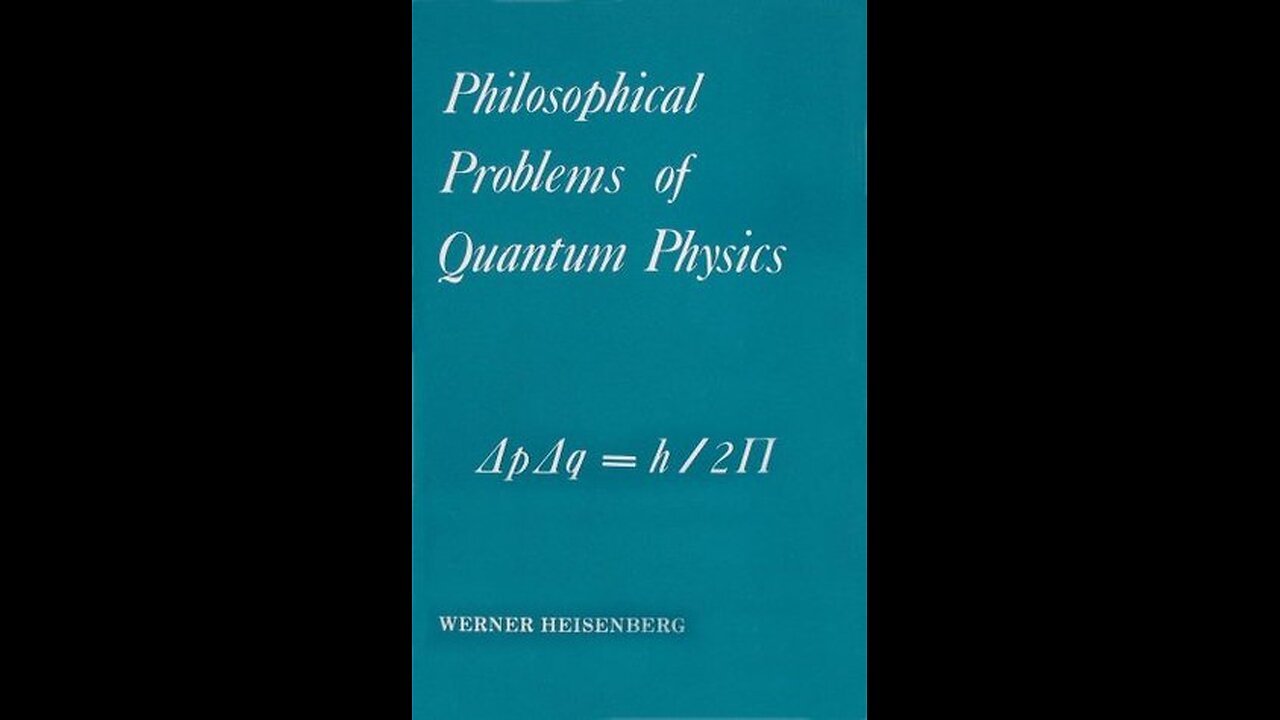Premium Only Content

Philosophical Problems of Quantum Physics by Werner Heisenberg | Summary and Critique
Buy Here: https://amzn.to/3W9Ag7b
"""Philosophical Problems of Quantum Physics"" is a book written by the physicist Werner Heisenberg, first published in 1952. The book deals with the interpretation of quantum mechanics, which is the branch of physics that describes the behavior of matter and energy at the atomic and subatomic scale.
Heisenberg was one of the pioneers of quantum mechanics and was instrumental in developing the theory. However, he was also deeply concerned with the philosophical implications of the theory and the problems that it posed for our understanding of the physical world.
The book is divided into four main sections, each of which deals with a different aspect of quantum mechanics. The first section provides an introduction to the basic concepts and principles of the theory, including the wave-particle duality, uncertainty principle, and the measurement problem.
The second section focuses on the interpretation of the theory and the various philosophical debates that have surrounded it. Heisenberg argues that there is no single, universally accepted interpretation of quantum mechanics and that the theory is fundamentally incomplete in certain respects.
The third section deals with the relationship between quantum mechanics and classical mechanics, which is the branch of physics that describes the behavior of larger, macroscopic objects. Heisenberg argues that the two theories are fundamentally different and that attempts to reduce quantum mechanics to classical mechanics are misguided.
The final section of the book discusses the implications of quantum mechanics for our understanding of the physical world, including the role of consciousness in the measurement process and the possibility of a unified theory that would reconcile quantum mechanics with general relativity.
Overall, ""Philosophical Problems of Quantum Physics"" is a highly influential work that has had a significant impact on both physics and philosophy. It is known for its clear and concise exposition of the basic concepts of quantum mechanics and for its insightful analysis of the various philosophical issues that arise from the theory."
-
 56:56
56:56
Candace Show Podcast
5 hours agoEXCLUSIVE: Taylor Swift Will Be Deposed. | Candace Ep 150
91.2K109 -
 1:03:52
1:03:52
IsaacButterfield
2 hours ago $0.26 earnedRepublican Vs 25 Transgender Activists | Jewish Outrage | Lizzo Loses All the Weight
15.9K1 -
 1:10:23
1:10:23
Edge of Wonder
6 hours agoChinese Biochips Hacking Minds? Quantum Control & Journey Song Mandela Effect
13.7K3 -
 DVR
DVR
Quite Frankly
9 hours ago"Ghosts, Robotics, and OBE's" ft. Dr. Albert Taylor 2/21/25
28.7K15 -
 55:52
55:52
LFA TV
1 day agoMaking Germany Great Again | TRUMPET DAILY 2.21.25 7PM
28.1K3 -
 1:52:26
1:52:26
2 MIKES LIVE
5 hours ago2 MIKES LIVE #183 Open Mike Friday with Hannah Faulkner and Adelia Kirchner!
13.7K -
 12:09
12:09
MrBigKid
5 hours ago $2.11 earnedNew Mossberg 590R: Tactical Homestead Defender
29K5 -
 25:43
25:43
Degenerate Jay
10 hours ago $1.34 earnedThe Future Of Grand Theft Auto Online Looks Grim
23.9K1 -
 1:04:05
1:04:05
In The Litter Box w/ Jewels & Catturd
1 day agoYOU'RE FIRED! | In the Litter Box w/ Jewels & Catturd – Ep. 747 – 2/21/2025
103K39 -
 56:28
56:28
SGT Report
22 hours agoSATAN'S CHILDREN ARE IN FULL PANIC MODE - Senator Mark Finchem & Sam Anthony
39.8K118